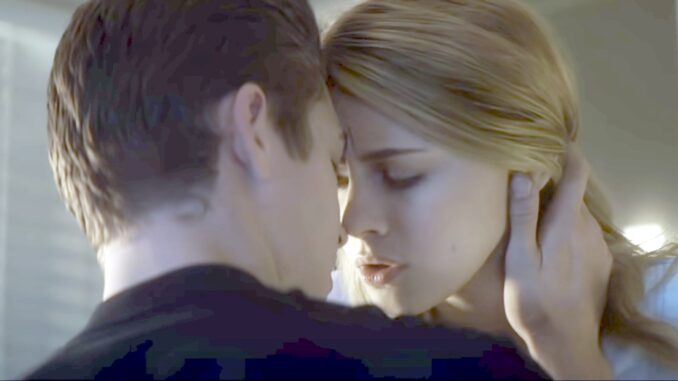
Decoding the Love Message Behind the Ending of After Everything
The After series, born from a tumultuous Wattpad phenomenon, built its empire on the visceral, often toxic, push-and-pull between Tessa Young and Hardin Scott. Their love story was a tempestuous ocean, a constant cycle of heartbreak and passionate reconciliation, leaving audiences on the edge of their seats, often frustrated, but always captivated. Given this history, the ending of After Everything was never going to be a simple, fairytale kiss-and-fade. Instead, it delivered something far more profound and, arguably, far more mature: a love message decoded not in grand gestures, but in the quiet strength of individual growth and the power of a single, hopeful "if."
For much of their saga, Tessa and Hardin were two halves desperately trying to complete each other, often at the expense of their individual identities. Hardin, a whirlwind of trauma and anger, found a fragile anchor in Tessa, while Tessa, the good girl, found a dangerous thrill and purpose in trying to "fix" him. This codependency, while fertile ground for dramatic storytelling, was inherently unsustainable. The "everything" in the film's title isn't just a nod to the accumulated history of their relationship; it signifies the necessary unraveling of that old, destructive dynamic.
The ending of After Everything pivots on the stark reality that both characters have spent considerable time apart, not just physically, but emotionally and psychologically. Hardin, finally confronting his demons, channels his pain into his writing, a cathartic process that forces introspection and accountability. He's no longer the volatile boy consumed by self-pity, but a man grappling with his past, seeking to understand rather than merely react. Similarly, Tessa has moved on, forging her own path in New York, pursuing her career, and reclaiming the independence she often sacrificed in the vortex of Hardin's world. She's learned to stand on her own two feet, her worth no longer defined by her proximity to him.
This individual journey is the first, crucial layer of the love message. The film doesn't present their reunion as a sudden, destined event that magically erases their past. Instead, it's a tentative, almost fragile encounter at a bookstore. They are different people now, bearing the scars of their past but also the quiet strength of their self-made healing. The love message here is clear: true, sustainable love cannot blossom from two incomplete individuals clinging to each other for validation. It requires two whole people, secure in their own identities, who then choose to share their lives.
The true heart of the message, however, lies in that final, poignant exchange. Hardin, recognizing the changed landscape between them, asks Tessa, "Is this goodbye?" And her response, devoid of the melodramatic certainty that once defined their every interaction, is simply: "It's an if."
This "if" is a kaleidoscope of meaning, reflecting a more mature, realistic understanding of love.
- It's an acknowledgment of their individual growth. "If" implies that they have both done the work, but there's no guarantee the work is finished or that their paths are now perfectly aligned.
- It's a testament to choice, not fate. Their love, once feeling like an inescapable gravitational pull, is now a conscious decision. They are choosing to consider a future, rather than being swept into one.
- It's an embrace of uncertainty. The passionate declarations of "forever" and "soulmates" have been replaced by a more grounded understanding that life is unpredictable. "If" offers hope without the burden of absolute certainty, allowing for continued evolution.
- It's an affirmation of self-respect. Tessa, by saying "if," retains her autonomy. She is not rushing back into the fire but opening a door, cautiously, with the understanding that she can close it if necessary. It signals that her well-being comes first, a lesson hard-won through years of emotional upheaval.
The love message decoded from After Everything's ending is a radical departure from the series' roots. It tells us that love, in its most enduring form, isn't about a frantic search for completion, or an exhilarating ride on a rollercoaster of drama. It's about the quiet, often arduous, work of becoming whole on your own. It's about respecting the journey of the other, even if that journey takes them far away. And when paths converge again, it’s about having the courage to meet not with old expectations, but with new understandings, and the profound wisdom to know that the most powerful love stories are not those with a definitive ending, but those with an open-ended "if." It suggests that after everything – after all the pain, the growth, the self-discovery – love isn't a destination, but a continuously evolving choice.
